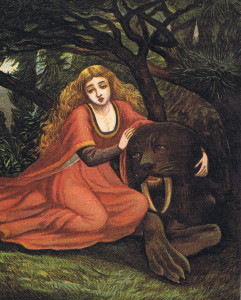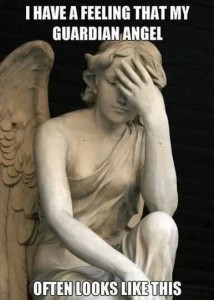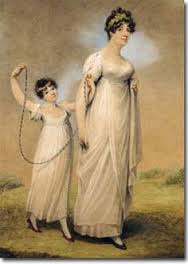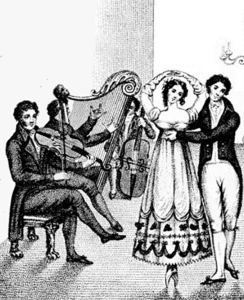 Can we talk about #tropes? Romance fiction is full of them, and some are specific to Regency romance. Do you have favorite tropes that always draw you to a story? Or some that guarantee you won’t pick up a book? I got a poor Amazon review for my book An Unlikely Hero mostly because it was a “house party” story and the reader was sick of those. I do wonder why she bought it!
Can we talk about #tropes? Romance fiction is full of them, and some are specific to Regency romance. Do you have favorite tropes that always draw you to a story? Or some that guarantee you won’t pick up a book? I got a poor Amazon review for my book An Unlikely Hero mostly because it was a “house party” story and the reader was sick of those. I do wonder why she bought it!
Elena talked about a few she dislikes back in January here when she was judging Rita books –and oh, boy, that task is coming up again all too soon! But the reason tropes are on my mind today is because in my “other” little Regency author group, the Bluestocking League, we are working on a website where we intend to include what may amount to a small encyclopedia of Regency romance tropes –a list, with descriptions of each and perhaps a few words about their appeal– and we have been compiling the list to start with. Not as easy as you might think, despite the existing lists already out there!
Want a peek at our list-in-progress? Have any you think we should add? Here it is in no particular order:
Loveable Rogue/Rogues in love
Childhood Friend Romance
Protectors
Dukes
Scandal
Beauty & the Beast
Estranged Lovers reunited
Friends to Lovers
Marriage of Convenience
Compromised
(other) Boss/Employee
Rakes
Mistaken Identity
(kidnapping) –almost always mistaken identity?
Rags to Riches
Wounded Hero/Caretaker Heroine
Masquerades (including Secret/Hidden Identity)
Road Trip/Runaways
Amnesia
Wagers/bets
 Ghosts/guardian angels/magic locket–i.e. Something paranormal outside of self influencing the romance.
Ghosts/guardian angels/magic locket–i.e. Something paranormal outside of self influencing the romance.
Soldier
Thief/highwayman/con artist (are there any gypsy Regencies–and if so, would they fit here or as own trope?)
Hidden treasure
Murder(s)
Spies (not just Agents of the Crown–could be a soldier, a French spy, etc.)
Wills (tricky provisions and/or inheritances that play a major role in the plot)
Marrying out of one’s class (not sure how to say that more simply)
Demi-monde/light skirts
Spinsters
Widows/Widowers
Artists/Musicians/Writers
Heroes who have a profession
Naval/Sea faring
Smuggling
Politics/Parliament
Handicapped (could be hero or heroine or secondary character whose handicap is an issue)
Social Issues (including slavery, abuse of children, etc.)
Farming/Raising Horses/Animals?
Waterloo (since this seems of particular interest to some readers)
Christmas (and perhaps other holidays)
India/Other foreign travel?
Children (stories where a child or children play a significant role in bringing the hero and heroine together)
Lots of books include more than one, and some overlap. Which books that you’ve read (or written), leap to mind when you look at these tropes?
We could talk about which favorite tropes appear in which favorite authors’ books. Or we could get into a discussion about where some of these tropes originated (besides the history of the period itself) –Austen? Heyer? Some of the early Regency writers like Cartland?
Sadly, I’ll have to leave that to you in the comments –I am really short on time this week! But I would love to hear what you all have to say about some of these tropes, or even about the list itself!






That’s quite the list, Gail!
One I would add that is very Regency-specific is the London Season story. Usually, the heroine’s family is in straitened circumstances and somehow have managed to send her to London for just one Season, during which she needs to make an advantageous marriage. The hero is tired of being pursued for his money and position in society. IMHO the classic example is Georgette Heyer’s ARABELLA.
Ooh, that’s a good one, Elena! We’ll add it to our ambitious list. Thanks! I know there are more we haven’t thought of. Not sure where we’ll find the time to write these all up, but it seems like a good thing to do!!
How about the fake engagement? In type a) the hero and heroine agree to fake it and they both have something to win (like better reputation for him and more suitors for her), in type b) one part ie the heroine invents the engagement and for some reason (like him being a spy or needing respectability) the hero goes along with it.
How about the fake engagement? In type a) the heroine and hero agree to the fake engagement and both stand to win something from it (like money, reputation, more suitors etc). In type b) one of them, always? the heroine invents the engagement, and for some reason (like being a spy, reputation etc) the hero goes along with it.
That’s such an exhaustive list that I wonder what possible plot lines are left to be classified as original rather than as a trope. My personal favorite is the friends to lovers theme.
The only time I dislike a trope is when it’s rooted in anachronism, such as the viscount who must marry or his earl father will take away his right of inheritance. Or the marriage of convenience for a time that will just be easily annulled away when it becomes inconvenient. Not possible.
What about the independent heroine? I’m not talking about the stories with heroines who brazenly flout the rules, because that would have had very negative repercussions and falls under the anachronism heading. I mean the heroines who managed to find a measure of free-spiritedness while still obeying “the rules.” There’s a misconception that following societal canon meant all proper Regency ladies were milquetoasts. So not true.
Banished. Either Hero or Heroine has embarrassed their family and are banished to the country for a time. Reasons have included: young man who spends beyond his means, young man caught climbing out of a respectable lady’s window by her husband and/or fiance, young woman who kissed one too many handsome red-coated Army officers, young woman accosted at Opera by drunken rake who thought she was someone else. Titles: This Rake of Mine by Elizabeth Boyle (Opera rake); What I Did for a Duke by Julie Anne Long (window climber) who got his HEA later in Between the Devil and Ian Eversea; I forget the title of the multi-kisser, I just remember that she is under “house arrest” at a cousin’s country home until wounded hero climbs into her dressing closet and passes out in a trunk of her underthings. Profligate spender-now-banished has been done numerous times under different titles.
Yup, every one of those on the list I’ve read. I definitely have my favorites; friends to lovers, childhood romance, mystery murder crime detectives (Jack the Ripper), rivals, second chances, marriage of convenience, lots and lots of agents and spies. Revenges are okay, they can be really good or dreadful.
One trope I tend to avoid are amnesia stories. I just can’t get into them, that and maybe secret baby or one night stands that leads to a baby on the way. I just don’t really care for them.
I’m loving the discussion! Thanks for joining in, ladies. Morgause, I’m adding “Fake Engagement” to the list –I’ve certainly read some of each of those you described. And Renee, “Forced Marriage” is another good one that has been used so many times –fortunately, at least in my reading experience, without the factually incorrect motivation for it that you noted. I agree that “banished to the country” is a trope, as Susan points out. The ability to take these well-worn tropes and spin them into a story that is still fun and original is the both the aim and the mark of a good author! ki pha, you brought up several more I must add to the list: rivals, second chances, and revenge. How did we leave those off?
Another one I thought of, which is done in various genres of romance, is the “castaway” story in which the characters are caught up in some circumstance like a plane crash, shipwreck, or severe blizzard that forces them into seclusion.
Love this list, Gail! Recognize a lot of the tropes showing up in my own books. I found myself thinking that at their core, so many of these tropes are about finding happiness even when one doesn’t quite fit what society expects of one. And that resonates with both readers and the authors because aren’t we all trying to figure that one out? Great blog post!
One I am currently working on is older brother’s best friend the heroine has known for a long time…sort of a variation on best friends in a way. I have read this in other stories — sometimes at a wedding. I think Georgette Heyer did a few of these, but I cant remember the titles.
Love the list. I think I’ve tried a lot of them — and I agree with Ki. The Amnesia plot is not attractive to me either.
it’s not so much how often these tropes are used but how they are used – it may be the same drivel I’ve read too many times or the same story handled in a very different way. a gifted cook and a so-so cook may use the same ingredients with very different outcomes.
Elena, “castaway” is another good one, and I think could be teamed up with “stranded”, although the latter doesn’t include the “seclusion” aspect you raised. You already know “stranded” applies to the novella I’m working on, so I should have thought of that!!
April, insightful as always, and Vicki, good comments –thanks for jumping in! And Jane, I love your analogy of the cooks getting different results using the same ingredients. Not just on the “good-vs-so-so” scale, but even two great cooks going different ways with the same materials. I do believe that’s how these tropes continue to resonate with readers, to the point of becoming “classic”!
Guess what? I just came home from my monthly writer’s meeting (shout-out to RIRW!) and what should appear in the speaker’s handout but –a list of tropes!! Something in the air?? Not a Regency list, but still quite exhaustive for general romance. It’s Romy Sommer’s list, which you can find at her website here:
http://romysommer.blogspot.com/2012/10/tropes-in-romance.html
Interesting coincidence, and an interesting list!!